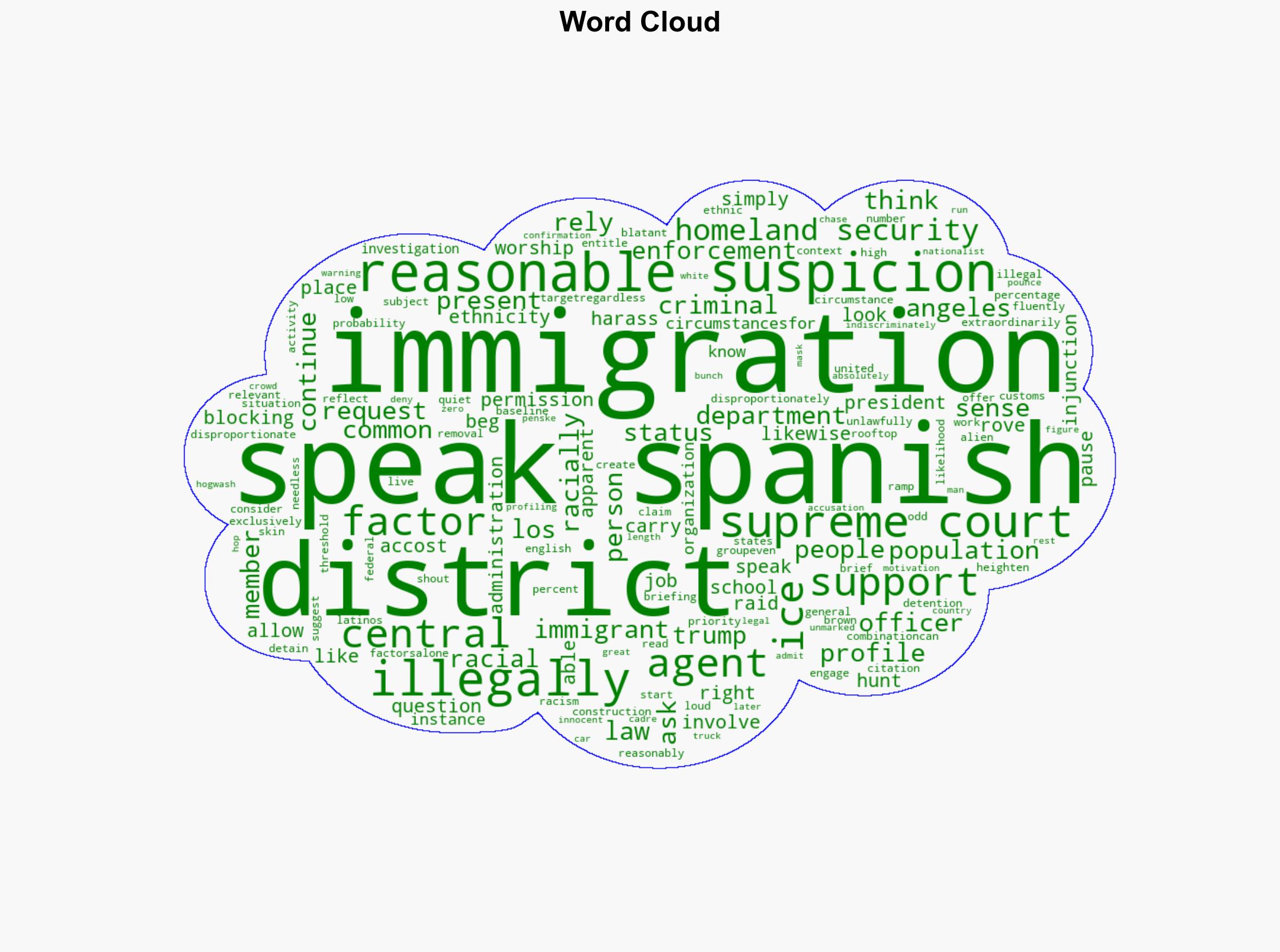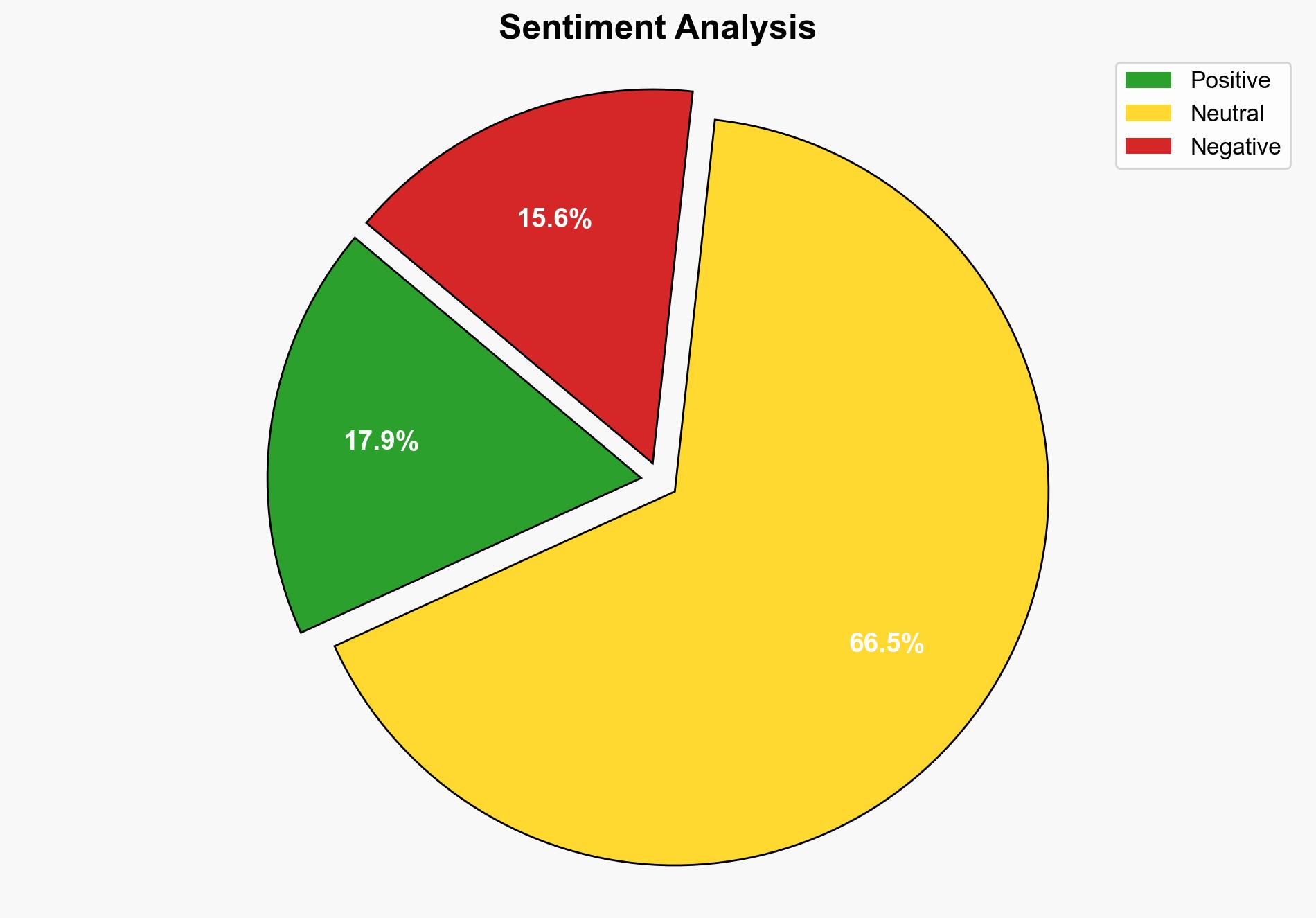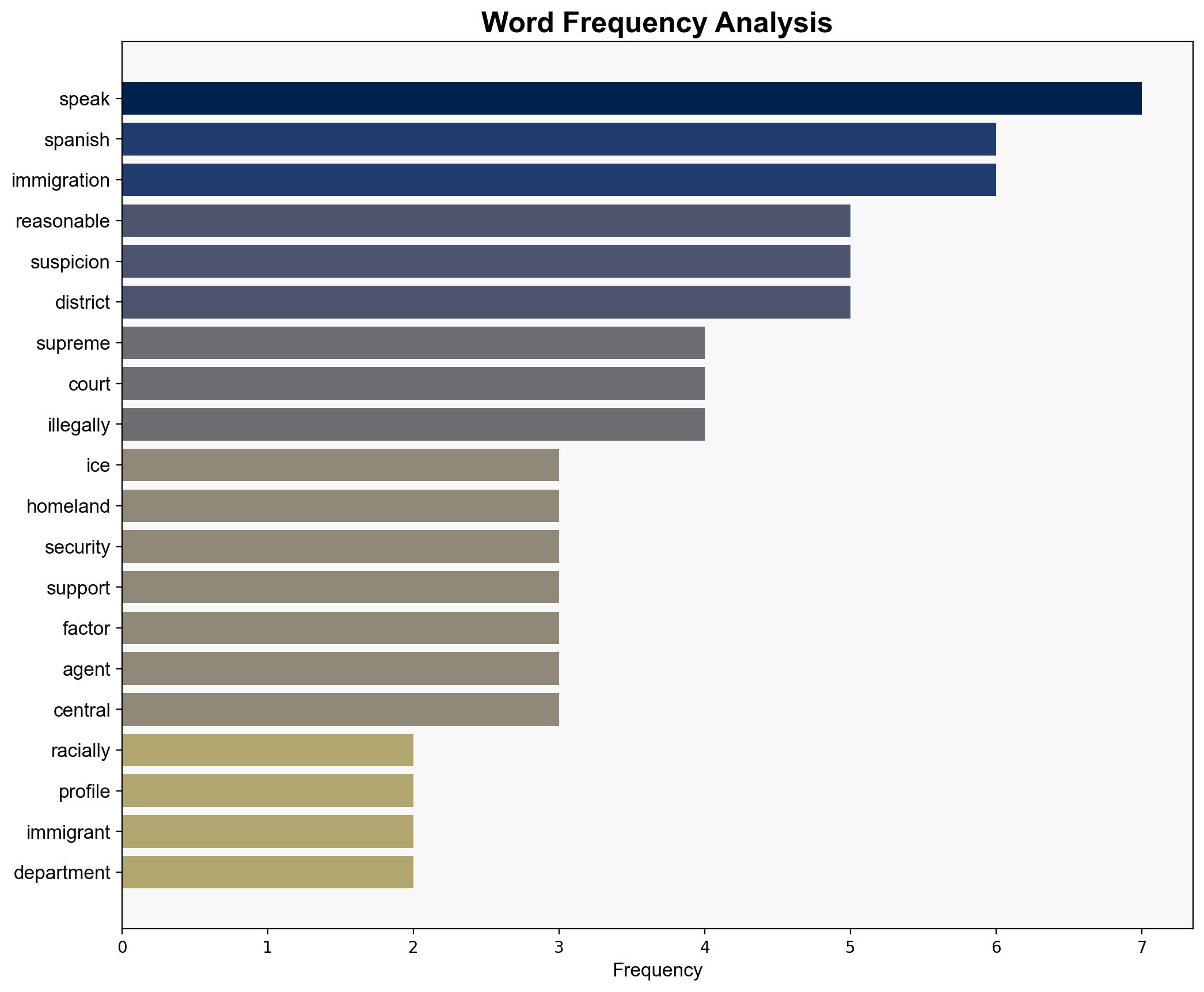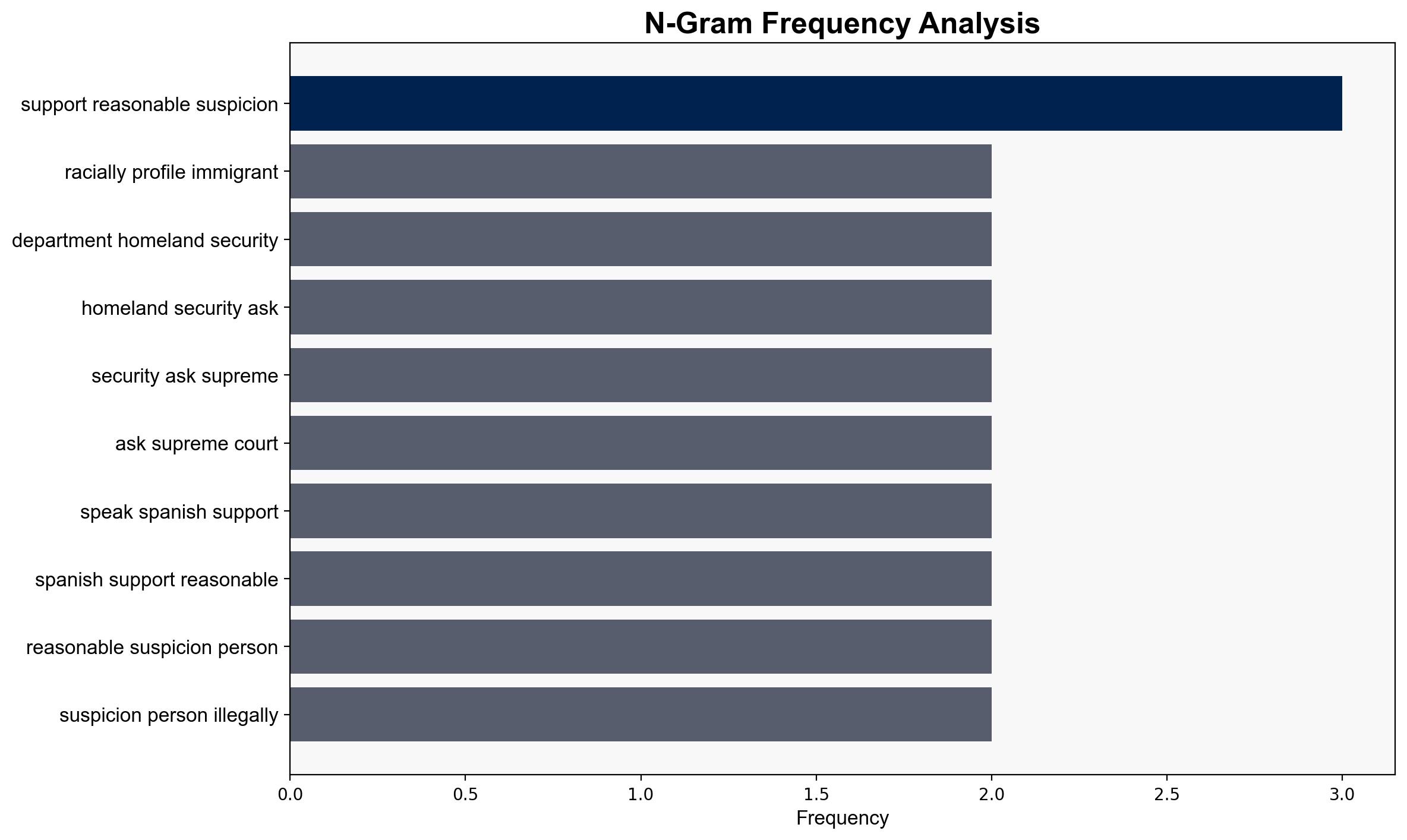ICE Begs Supreme Court for Right to Racially Profile Immigrants – The New Republic
Published on: 2025-08-08
Intelligence Report: ICE Begs Supreme Court for Right to Racially Profile Immigrants – The New Republic
1. BLUF (Bottom Line Up Front)
The most supported hypothesis is that the Department of Homeland Security (DHS) is seeking legal validation for practices that may disproportionately target specific ethnic groups under the guise of immigration enforcement. This is based on the explicit request to consider language and ethnicity as factors for reasonable suspicion. Confidence in this assessment is moderate due to the potential for political and legal challenges. Recommended action includes monitoring legal proceedings and preparing for potential public backlash and civil rights implications.
2. Competing Hypotheses
1. **Hypothesis A**: DHS is genuinely seeking to enhance immigration enforcement efficiency by using language and ethnicity as indicators of illegal presence, based on statistical prevalence.
2. **Hypothesis B**: DHS’s request is a strategic move to normalize racial profiling under the pretext of immigration enforcement, potentially driven by political motives.
Using the Analysis of Competing Hypotheses (ACH) 2.0, Hypothesis B is better supported. The explicit mention of language and ethnicity as factors, without substantial evidence of their necessity, aligns with patterns of racial profiling rather than purely operational efficiency.
3. Key Assumptions and Red Flags
– **Assumptions**: Hypothesis A assumes that language and ethnicity are reliable indicators of illegal status, which is contentious and lacks empirical support. Hypothesis B assumes a political motive behind the request, which is plausible given historical context.
– **Red Flags**: The absence of clear statistical evidence supporting the correlation between language/ethnicity and illegal status is a significant red flag. Additionally, the potential for bias in the interpretation of “reasonable suspicion” is concerning.
4. Implications and Strategic Risks
– **Social and Political Risks**: Legal validation of racial profiling could lead to increased civil unrest and damage to community relations, particularly in ethnically diverse regions.
– **Geopolitical Risks**: International criticism and potential diplomatic tensions could arise, particularly with countries whose nationals are disproportionately affected.
– **Legal Risks**: Upholding such practices could face significant legal challenges, potentially reaching the Supreme Court, affecting broader civil rights jurisprudence.
5. Recommendations and Outlook
- Monitor the legal proceedings closely to anticipate outcomes and prepare for potential policy shifts.
- Engage with community leaders to mitigate tensions and foster dialogue on immigration enforcement practices.
- Scenario Projections:
- Best Case: Legal rejection of racial profiling practices, leading to more equitable enforcement policies.
- Worst Case: Legal validation of racial profiling, resulting in widespread civil unrest and international condemnation.
- Most Likely: Ongoing legal battles with temporary injunctions preventing immediate implementation.
6. Key Individuals and Entities
– Department of Homeland Security
– Immigration and Customs Enforcement (ICE)
– Supreme Court of the United States
7. Thematic Tags
national security threats, civil rights, immigration enforcement, legal challenges





